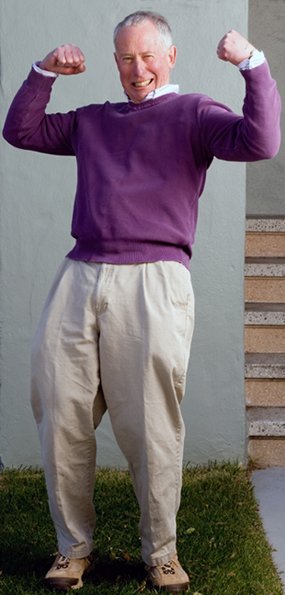Last August, Howard Junker announced that at the end of 2009 he would retire as editor of ZYZZYVA, the literary journal he founded in San Francisco in 1985. Six months later, in February, he rescinded his resignation. Junker recently spoke about his change of heart and the future of the magazine.

What is it about ZYZZYVA that made you change your mind? Is it that irresistible?
When the moment came for me to step away, everything conspired against me, especially the economy, which devastated our donor base. And I couldn't find the perfect successor. And I couldn't think of anything I'd rather do. Lit mags—and their editors—are supposed to die young: Define a generation, then vanish. As a precocious brat, I always assumed I'd die young, but I turned into an old codger. Now that I've been reborn, I'm trying to reincarnate as an elder statesman.
Why didn't ZYZZYVA die young? Why has it stayed relevant for so long?
Actually, twenty-five years is not a long time anymore for lit mags. Or even for lit mag editors. Frederick Morgan lasted fifty years at the Hudson Review. Theodore Weiss put in almost sixty years at the Quarterly Review of Literature, George Plimpton almost fifty at the Paris Review. My cross-Bay colleague Wendy Lesser just passed thirty at the Threepenny Review. So my endurance is minor—but my will is strong, and that helps. And the community of readers, donors, bookstores, and galleries has been tremendously generous. When I started, I thought the West Coast didn't have a journal, besides the rather academic Threepenny, that could compete with those in the East and the South and the Midwest. But now we have Glimmer Train Stories; Zoetrope: All-Story; McSweeney's; Tin House; Black Clock.... There's been this proliferation of venues because a lot of people want to get published. So we serve them. Unfortunately, the number of those who like to read lit mags, much less subscribe to them, has not kept pace. As to relevance in general, I'm not sure that's the issue. I think I'm against relevance. I'm not in touch with the McSweeney's generation; their amateurish gleefulness appalls me. I stand by old-time values, although I'm sure to the generation before me I seemed like a gleeful amateur.
Were those values tested when, as an editor, you had to follow the technological advances of the past decade or so?
At first, tech was my friend. Desktop publishing was a godsend. E-mail was great. The Web started out great, but digital has been totally disruptive. The low-end workhorses of words on paper, like newspapers, are already destroyed. The luxury items, like lit mags, can survive as toys for the rich—Glimmer Train, Tin House, Zoetrope—or as enticements, like stadiums and museums, in universities. But the Twitter sensibility has no room for literate articulation. To read and write you have to enjoy being alone, quiet, and static. That's not what tech fosters. I like blogging as a daily yoga. I post every day, as a personal exercise, not as a marketing tool. I like to spout off.
Times are tough—how are you meeting the challenge?
We're doing a Fall/Winter double issue, which is a traditional lit mag way of retrenching, but in our case is also a way of celebrating our twenty-fifth anniversary. We had hoped to line up a university press to do an anthology, but the depression scared off our best prospect. And luckily the managing editor decided to go to Italy to work on her novel, so we've been able to downsize the staff without being harsh. I've even been learning how to do the bookkeeping. The thing is, the situation has always been dire. I'll get by with the help of my friends. If I were going to despair, I would have long ago.
Kevin Larimer is the deputy editor of Poets & Writers Magazine.








